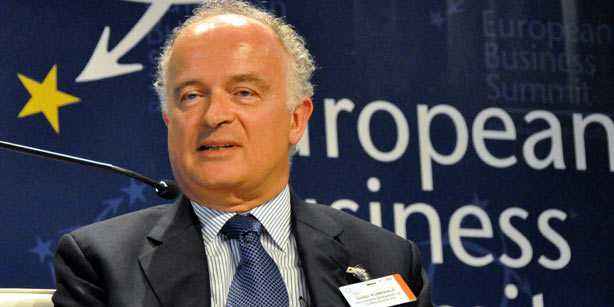The European Union will no longer play a key role in Turkey’s post-election reform efforts because there is no clear perspective on Turkish accession into the 27-nation bloc, Turkey’s ambassador to the EU said.

Selim Kuneralp, Turkey’s ambassador to the European Union
“The European Commission’s recommendations will be taken on board to the extent that they reflect universal norms. Take the death penalty [which Turkey abolished in 2004]. Whether or not you want to join the EU, it’s a good thing to abolish the death penalty,” Ambassador Selim Kuneralp said in an interview with news portal EUobserver, published on Monday. “But in the absence of any clear perspective of accession, there’s no reason why Turkey should align its legislation toward narrow EU standards. To put it simply, the EU has lost its leverage on Turkey.”
Prime Minister Recep Tayyip Erdoğan’s Justice and Development Party (AK Party) won a landslide victory to secure a third consecutive term in power in elections on June 12. Erdoğan had promised to rewrite Turkey’s military-era constitution and said after his election win that he would seek a consensus while doing that.
Commenting on possible changes to the Constitution to allow a transition from the current parliamentary system to the presidential system, something that leads to worries in the EU that could put Turkey in an authoritarian direction, Kuneralp said the EU would have little say if the scenario came to be.
“Even if we were to shift to a presidential-style system, there is at least one European country that already has such a constitution. And I am not aware of anyone in the EU telling France it doesn’t meet European standards,” Kuneralp said.
Turkey’s accession talks with the EU have come to a standstill now that there are only a few chapters left open for negotiations. The EU suspended talks on eight chapters in 2006 due to Turkey’s refusal to open its ports and airports to traffic from EU member Greek Cyprus. France, which opposes Turkish membership on cultural grounds, blocks the opening of five other chapters that it says are directly related to accession. The remaining chapters are more difficult ones, requiring candidate countries to agree to sweeping concessions. Turkish officials have revealed that the government is unwilling to agree to such concessions in the absence of a clear perspective for accession.
In late 2010, the EU Commission opted not to open one of the few remaining chapters, the competition chapter, amid opposition from several EU states. “People in Ankara are fed up. They made all sorts of attempts to satisfy the commission. But the more material we gave them, the more they demanded,” Kuneralp said of the setback.
He also predicted that internal divisions will hamper EU foreign policy chief Catherine Ashton’s recent bid to restart Middle East peace talks and dismissed Western concerns that the Turkish government is too close to Iran. “It’s easy if someone is sitting in Washington to pontificate about Iran as a threat. But Iran is our neighbor … we have to talk to Iran and we have to trade with Iran,” Kuneralp told the EUobserver.
On Syria, he noted that Turkey shares the EU line that Damascus must make pro-democratic reforms. But he declined to back the EU’s draft UN Security Council resolution condemning killings and urging an arms embargo. “The [Turkish] prime minister has said the international community would need to get involved if the massacres in Syria continue … [But] we have not been consulted on any possible UNSC resolution and I cannot comment on which course of action we would prefer,” he said.
Kuneralp also said Syrians taking refuge in Turkey will not form a political base for Syrian opposition. “They are not the kind of people you would expect to become actively involved in opposition. They are mostly just farmers fleeing government action.”
